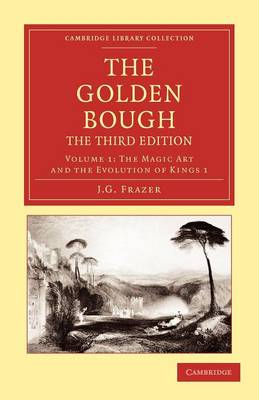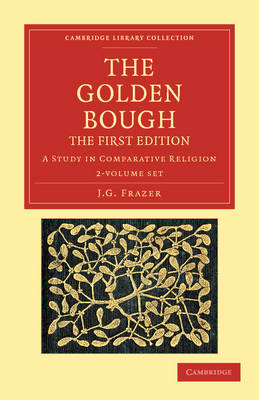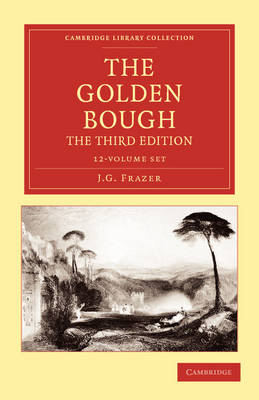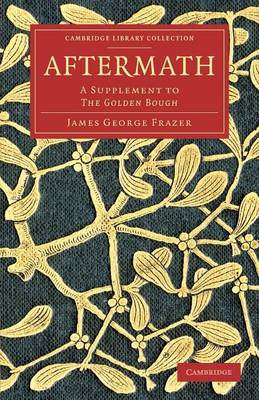Cambridge Library Collection - Classics
1 primary work • 5 total works
Volume 1
This work by Sir James Frazer (1854–1941) is widely considered to be one of the most important early texts in the fields of psychology and anthropology. At the same time, by applying modern methods of comparative ethnography to the classical world, and revealing the superstition and irrationality beneath the surface of the classical culture which had for so long been a model for Western civilisation, it was extremely controversial. Frazer was greatly influenced by E. B. Tylor's Primitive Culture (also reissued in this series), and by the work of the biblical scholar William Robertson Smith, to whom the first edition is dedicated. The twelve-volume third edition, reissued here, was greatly revised and enlarged, and published between 1911 and 1915; the two-volume first edition (1890) is also available in this series. Volume 1 (1911) explores the belief that kings could harness Nature.
Sir James Frazer (1854-1941) is best remembered for his monumental study of ancient religion, The Golden Bough (of which the first and third editions are both reissued in this series). He also produced a translation of and commentary on the Description of Greece of Pausanias, the second-century CE traveller and antiquarian, and the first piece in this 1900 compilation of Frazer's 'sketches' is the introductory essay to that work. Short descriptions then follow of the present-day appearance of over ninety places visited by Pausanias, and the work ends with an essay on Pericles and the effect of the period of his rule on the art and architecture of Athens. This fascinating work is imbued with Frazer's enthusiasm for, and knowledge of, the topography of ancient Greece, and will be of interest not only to scholars but also to visitors to the country.
This work by Sir James Frazer (1854-1941) is widely considered to be one of the most important early texts in the fields of psychology and anthropology. At the same time, by applying modern methods of comparative ethnography to the classical world, and revealing the superstition and irrationality beneath the surface of classical culture, and also by examining Christianity using the same techniques, it was extremely controversial. Frazer was greatly influenced by E. B. Tylor's Primitive Culture (also reissued in this series), and by the work of the biblical scholar William Robertson Smith, to whom the first edition is dedicated. That edition, reissued here, was published in two volumes in 1890; the third edition, greatly enlarged to twelve volumes, and published between 1911 and 1915, is also available in this series. These volumes compare the place of human sacrifice in classical religion and that of other cultures.
This work by Sir James Frazer (1854-1941) is widely considered to be one of the most important early texts in the fields of psychology and anthropology. At the same time, by applying modern methods of comparative ethnography to the classical world, and revealing the superstition and irrationality beneath the surface of the classical culture which had for so long been a model for Western civilisation, it was extremely controversial. Frazer was greatly influenced by E. B. Tylor's Primitive Culture (also reissued in this series), and by the work of the biblical scholar William Robertson Smith, to whom the first edition is dedicated. The twelve-volume third edition, reissued here, was greatly revised and enlarged, and published between 1911 and 1915; the two-volume first edition (1890) is also available in this series.
The Scottish social anthropologist Sir James Frazer (1854-1941) first published The Golden Bough in 1890. A seminal two-volume work (reissued in the Cambridge Library Collection), it revolutionised the study of ancient religion through comparative analysis of mythology, rituals and superstitions around the world. Following the completion in 1915 of the revised twelve-volume third edition (also available in this series), Frazer found that he had more to say and further evidence to present. Published in 1936, Aftermath was conceived as a supplement to The Golden Bough, offering his additional findings on such topics as magic, royal and priestly taboos, sacrifice, reincarnation, and all manner of supernatural beliefs spanning cultures, continents and millennia. Sealing Frazer's profound contribution to the study of religion and folklore, this work remains an important text for scholars of anthropology and the history of ideas.




